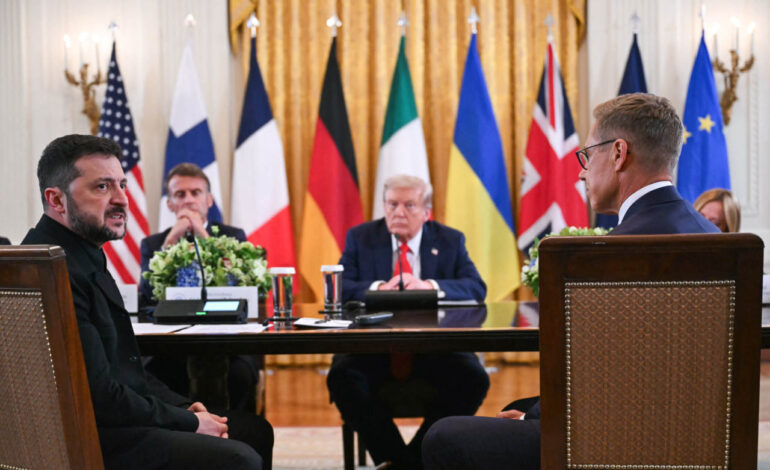Understanding Security Guarantees for Ukraine’s Future Stability

As the conflict between Ukraine and Russia continues, discussions surrounding the concept of a “security guarantee” have intensified. This term refers to formal commitments from other nations to protect Ukraine’s sovereignty and territorial integrity. Such arrangements aim not only to bolster Ukraine’s defense capabilities but also to deter further aggression from Russia, which has already invaded its neighbor.
Historical precedents illustrate the complexities of establishing effective security guarantees. The North Atlantic Treaty Organization (NATO) and the European Union have both played significant roles in shaping security frameworks in Europe. For instance, the NATO alliance, formed in 1949, has provided collective defense assurances that have deterred potential aggressors in the region.
Lessons from History
Looking back at historical examples can offer valuable insights into the current situation. The Budapest Memorandum, signed in 1994, committed Russia, the US, and the UK to respect Ukraine’s borders in exchange for Ukraine relinquishing its nuclear arsenal. Despite these assurances, Russia’s 2014 annexation of Crimea demonstrated the limitations of such guarantees. The failure to uphold commitments under this memorandum raises critical questions about the effectiveness of security agreements in deterring hostile actions.
In contrast, NATO’s Article 5, which states that an armed attack against one member is an attack against all, showcases a more robust deterrence mechanism. This principle has been central to NATO’s collective defense strategy, effectively preventing direct military confrontations among member states. Ukraine’s aspirations to join NATO have been met with mixed reactions, highlighting the complexities of expanding security guarantees to non-member nations.
The Current Landscape
As Ukraine seeks to strengthen its defenses, the international community’s role becomes increasingly pivotal. The United States, alongside European allies, has provided military assistance and financial support, which has proven crucial in enhancing Ukraine’s defensive capabilities. For example, in March 2024, the US announced an additional aid package worth $1 billion, aimed at supplying advanced weaponry and training for Ukrainian forces.
Moreover, discussions around formal security guarantees have gained momentum. Some experts advocate for a new framework that combines elements from existing alliances and agreements while tailoring them to Ukraine’s unique context. This could involve a coalition of nations willing to pledge military support and economic assistance in times of crisis.
While the prospect of a security guarantee for Ukraine appears promising, challenges remain. Engaging Russia diplomatically while simultaneously enhancing Ukraine’s defense capabilities poses a delicate balance. The geopolitical landscape is fraught with tension, as any commitment from Western nations could provoke further escalation.
In conclusion, establishing a security guarantee for Ukraine is not merely a matter of political will; it requires a nuanced understanding of historical precedents, strategic alliances, and the current geopolitical environment. As the situation evolves, the international community must consider the lessons of the past to craft a robust and effective approach to ensure Ukraine’s sovereignty and prevent further aggression from Russia.






